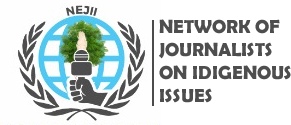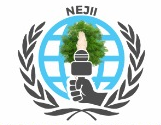In a world where the loudest voices often drown out the quiet struggles of marginalized communities, indigenous peoples remain among the most underrepresented in media narratives. Yet, their stories are crucial — they are stories of resilience, of ancestral ties to the land, of cultural heritage, and of a fight for justice and recognition.
At the Network of Journalists on Indigenous Issues (NEJII), we believe that journalists and storytellers have a critical role to play in amplifying these voices responsibly and respectfully. But reporting on indigenous issues requires more than just good intentions, it demands understanding, sensitivity, and ethical practice.
That’s why we are proud to present our Manual on Reporting Indigenous Issues, a comprehensive, journalist-friendly guide designed to help media practitioners cover indigenous communities with fairness, accuracy, and depth.
Why This Manual Matters
Too often, indigenous issues are portrayed in simplistic or stereotypical ways, reduced to festivals, rituals, or conflicts, ignoring the full political, economic, and human dimensions of their lives. As the Manual emphasizes:
- Indigenous peoples have the right to tell their own stories.
- Journalists should experience indigenous realities firsthand by visiting communities and engaging with them meaningfully.
- Official narratives and government statements should always be fact-checked, because institutional power does not guarantee truth.
- Reporting should highlight the strengths, capabilities, and potential of indigenous peoples, not fixate on their challenges alone.
From tips on working with interpreters, to understanding intra-community dynamics, and even using budget-tracking as a reporting tool, the Manual equips journalists with the practical insights and ethical grounding they need to do justice to these stories.
Take the Next Step
Are you a journalist, researcher, or storyteller looking to deepen your reporting on indigenous peoples? Do you want your work to reflect not only the reality of their struggles but also their dignity, agency, and contributions?
Download the NEJII Manual on Reporting Indigenous Issues today and start telling the stories that matter and telling them right.
Let’s work together to make sure no story and no community is left behind.


